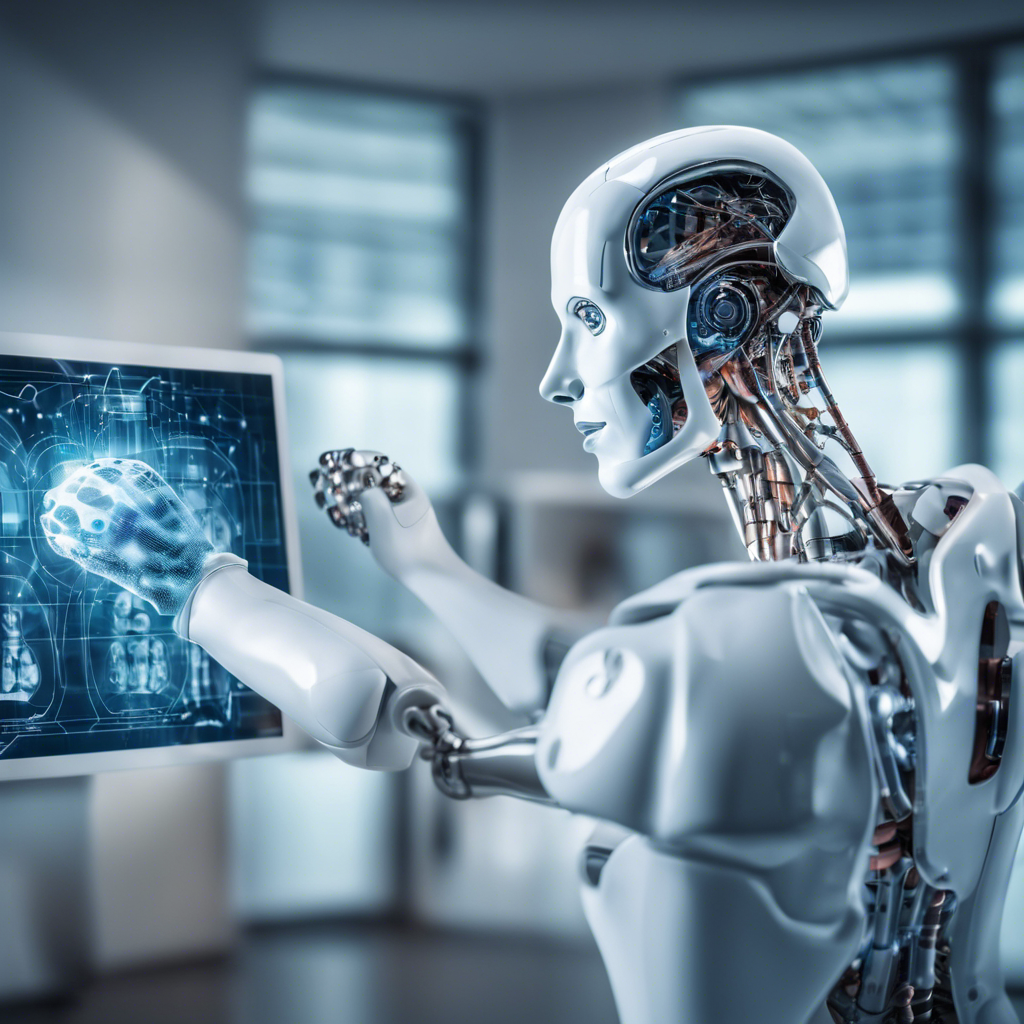The Rise of Artificial Intelligence in the Healthcare Industry

How AI is Revolutionizing Healthcare Delivery and Patient Care
In recent years, the healthcare industry has witnessed a remarkable transformation with the advent of artificial intelligence (AI). This cutting-edge technology has the potential to revolutionize healthcare delivery and patient care in ways we could have never imagined. From diagnosing diseases to improving treatment outcomes, AI is now playing a pivotal role in shaping the future of medicine. In this article, we will explore the various applications of AI in healthcare and the impact it is having on both healthcare professionals and patients.
1: Diagnosing Diseases with Precision
One area where AI has made significant strides is in disease diagnosis. With the ability to analyze vast amounts of medical data, AI algorithms can now detect patterns and anomalies that may not be immediately apparent to human doctors. For example, AI-powered systems can analyze medical images such as X-rays and MRIs to identify early signs of diseases like cancer or heart conditions. This not only improves the accuracy of diagnoses but also allows for early intervention and better treatment outcomes.
2: Enhancing Treatment Planning and Personalization
AI is also revolutionizing treatment planning and personalization. By analyzing patient data and medical literature, AI algorithms can suggest the most effective treatment plans for individual patients. This not only saves time for healthcare professionals but also ensures that patients receive the most appropriate and personalized care. Additionally, AI can help predict patient responses to different treatments, allowing doctors to make more informed decisions about the best course of action.
3: Improving Patient Monitoring and Care
Another area where AI is making a significant impact is in patient monitoring and care. AI-powered systems can continuously analyze patient data, such as vital signs and medication adherence, to detect any deviations or potential risks. This real-time monitoring allows healthcare professionals to intervene promptly and provide timely interventions, ultimately improving patient outcomes. Moreover, AI chatbots and virtual assistants are being used to provide personalized support and guidance to patients, enhancing their overall healthcare experience.
4: Streamlining Administrative Tasks
Beyond clinical applications, AI is also streamlining administrative tasks in the healthcare industry. From scheduling appointments to managing medical records, AI-powered systems can automate repetitive and time-consuming tasks, freeing up healthcare professionals to focus on patient care. This not only increases efficiency but also reduces the likelihood of errors and improves overall workflow in healthcare facilities.
5: Ethical Considerations and Challenges
While the rise of AI in healthcare brings numerous benefits, it also raises important ethical considerations and challenges. Issues such as data privacy, algorithm bias, and the potential for job displacement need to be carefully addressed. Additionally, there is a need for robust regulations and guidelines to ensure the responsible and ethical use of AI in healthcare.
Conclusion:
Artificial intelligence is transforming the healthcare industry, offering new possibilities for disease diagnosis, treatment planning, patient monitoring, and administrative tasks. With its ability to analyze vast amounts of data and provide personalized insights, AI is revolutionizing healthcare delivery and improving patient outcomes. However, as with any emerging technology, there are ethical considerations and challenges that need to be addressed. By navigating these challenges responsibly, AI has the potential to reshape the future of medicine and provide better healthcare for all.










